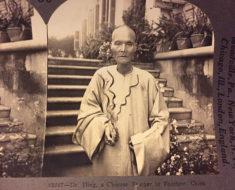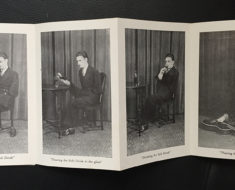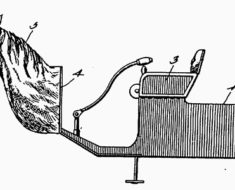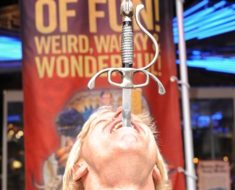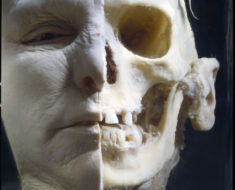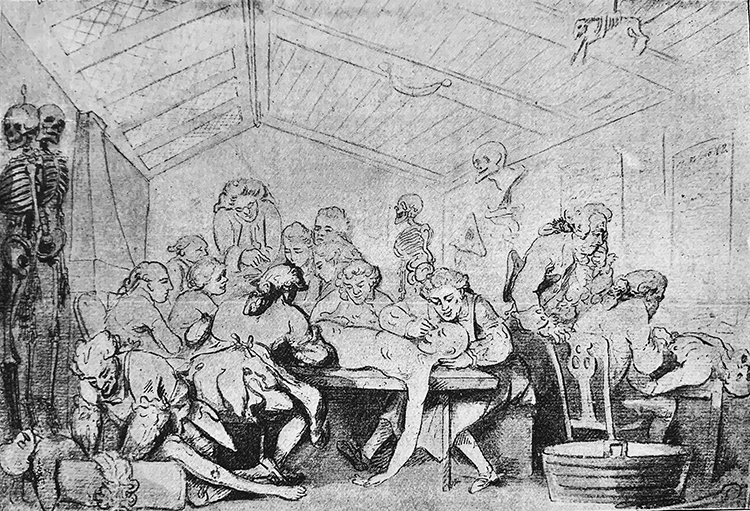
When English philosopher Jeremy Bentham died in 1832, he requested that his body be dissected to aid science and then preserved. To this day his skeleton remains inside a seated wax figure. In 1835, another Englishman died and had made an unusual request for his remains: He wished to be turned into “essential salts” for his lady friends to use.
John Boys, who was 82 years old at the time, had informed Dr. Hector Campbell decades earlier that his body could be used for anatomical study after his death. In 1831 he followed up on the discussion with a letter in 1831, stating:
“Are you now disposed (without burking) to accomplish my wish when my breath or spirit shall have ceased to animate my carcase, to perform the operation of vitrifying my bones, and sublimating the rest, thereby cheating the devil of his due, according to the ideas of some devotees among Christians? And, that I may not offend the delicate olfactory nerves of my female friends with a mass of putridity, if it be possible, let me rather fill a few little bottles of essential salts therefrom, and revive their drooping spirits. It may be irksome to you to superintend the business, but, perhaps, you have knowledge of some rising genius or geniuses who may be glad of a subject without paying for it. Let them slash, and cut, and divide, as best please ’em.”
The “burking” he referred to the recent-at-the-time case of Burke and Hare, two murderers in Edinburgh who killed people in order to get paid by an Anatomy professor for the fresh corpses. No questions asked. Since Boys lived four more years, it’s apparent he wasn’t burked in order to sell off his hopefully-not-putrid sublimated remains.
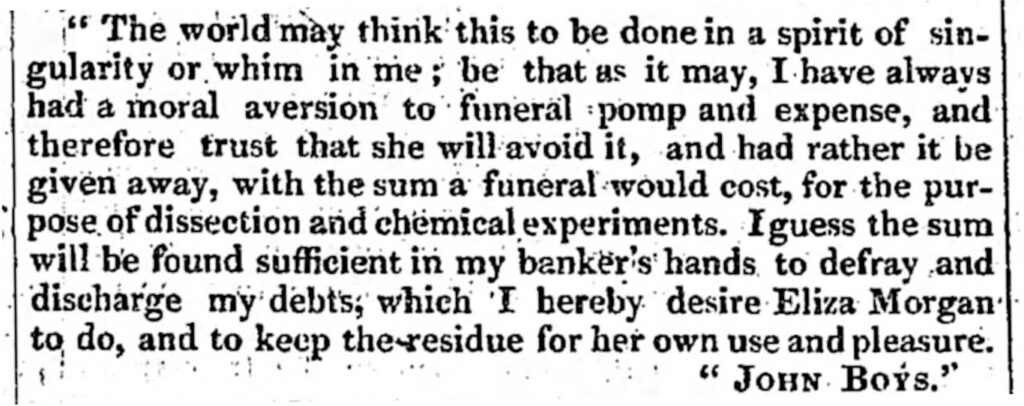
Boys had other strange requests as well for his posthumous adventures—including plans to create music and offer views to the stars:
“After my death I request that my guts may be made into fiddle-strings, the other parts of my body to be a sublimed and converted into essential salts; the vitrious particles to be cast into smelling bottles, and into telescope glasses to view the heavenly bodies.”
But Boys wasn’t just concerned about his immediate afterlife. He planned out his final moments of life as well: “I desire to be attended during my dying moments by fiddlers and dancing girls, and to be fiddled and danced out of the world, which I intend as a satire on a death-bed repentance.”

